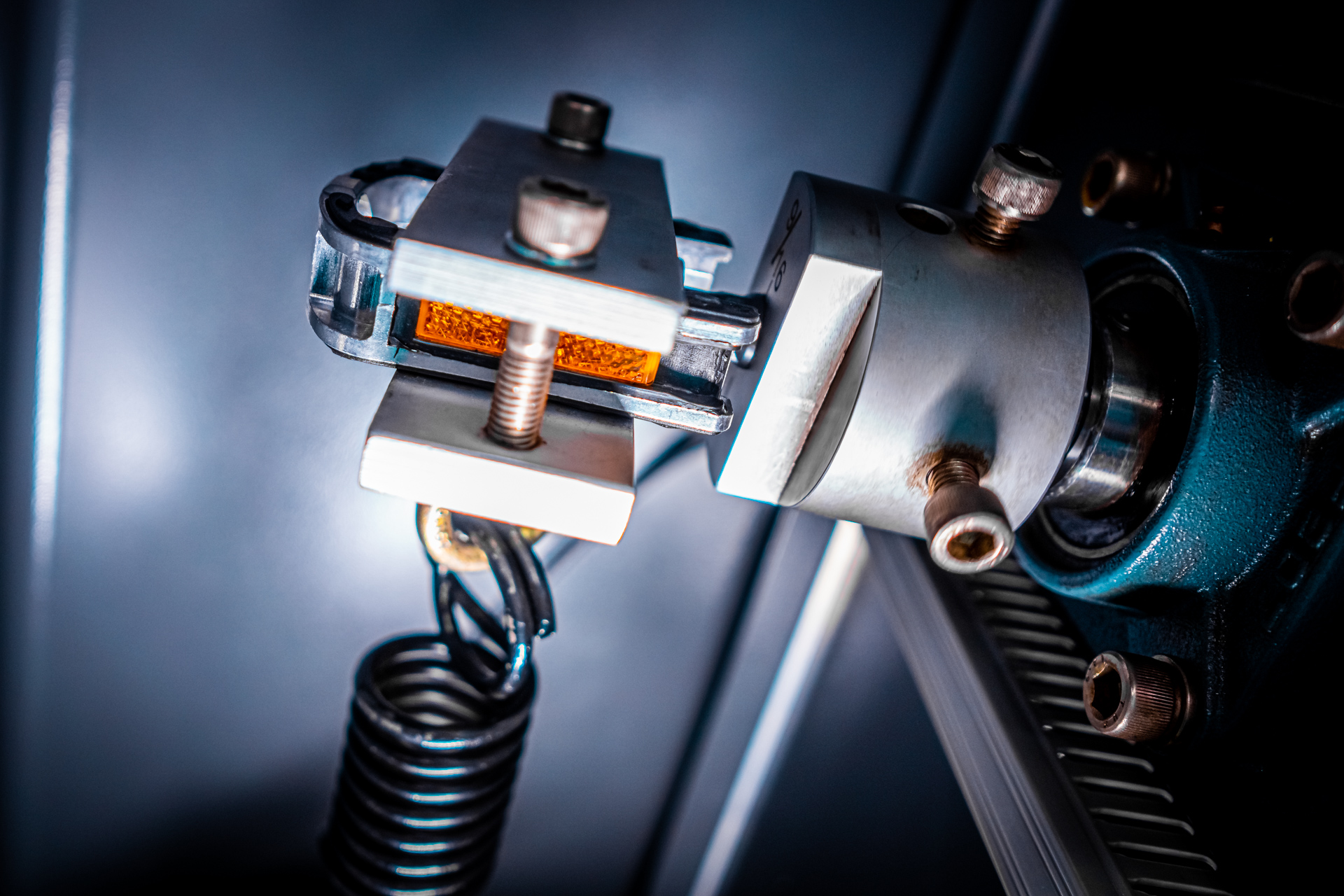AND A RESEARCH AND DEVELOPMENT CENTRE
The AG Motors Design Team is a group of professionals specialising in areas such as 3D modelling, FEM analysis, structural and equipment design, applied arts and product graphic design. With advanced project management software and state-of-the-art IT assets, they are capable of providing the desired results within short timeframes.
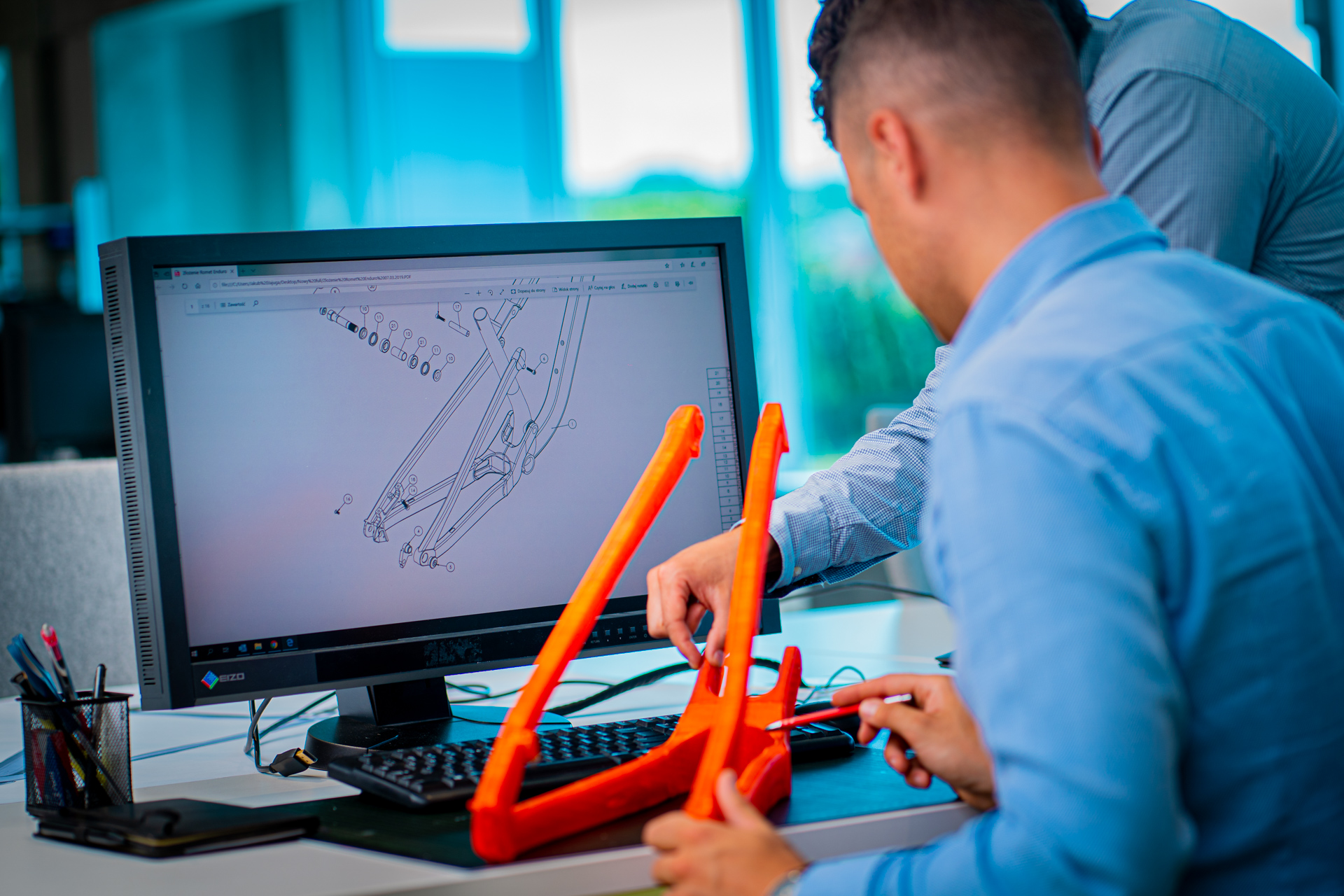

The beginning of the work related to the creation of each new bicycle concept is a sketch made by the main designer
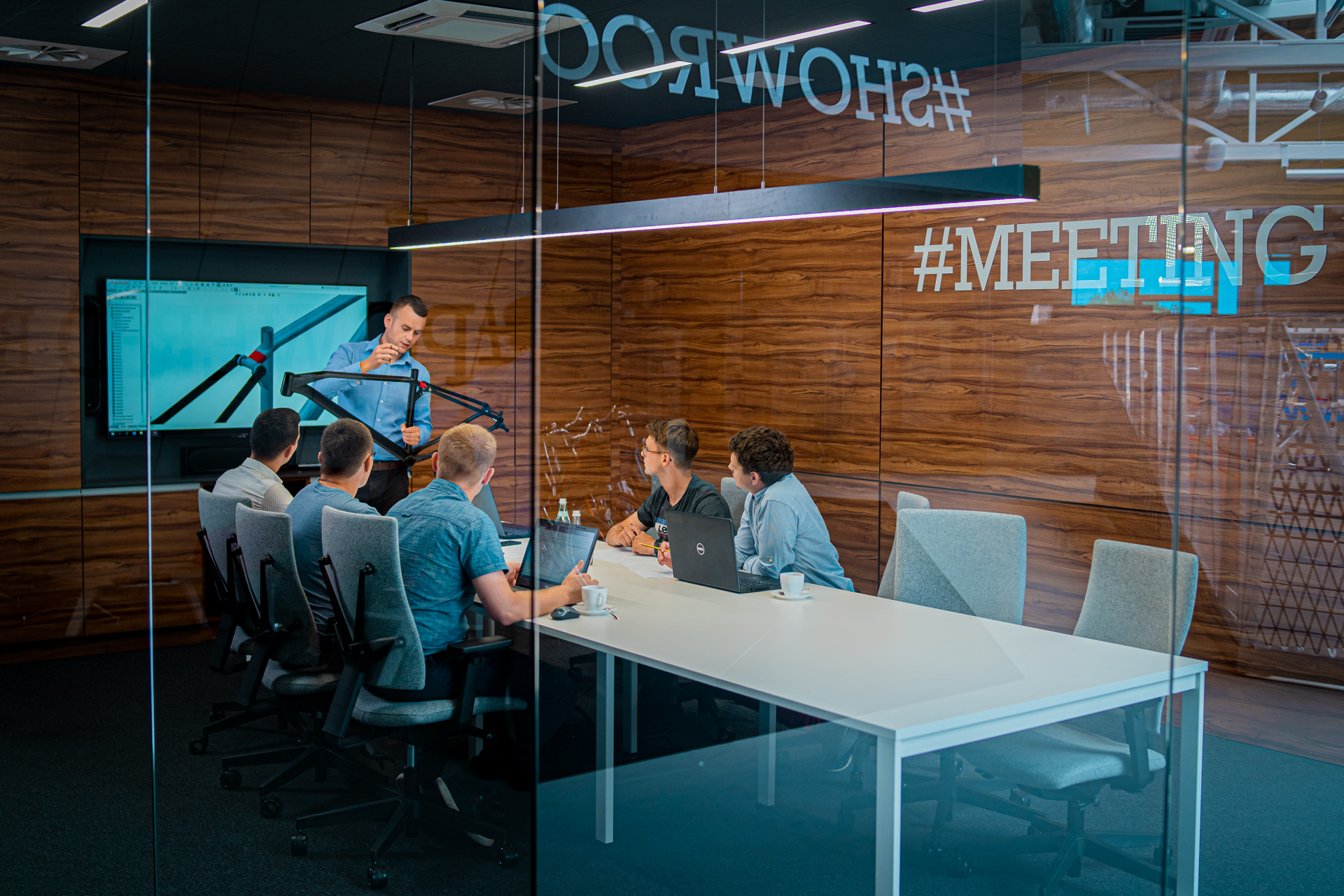

After receiving the sketch, the team of engineers verifies the possibility of creating a frame with shapes similar to those drawn by the team of designers. A 3D model of the frame is created, and it is presented to the whole team to discuss technical and aesthetic issues.


At the same time, the team of designers prepares different variants of the bike specifications, such as gears, shock absorbers, brakes, wheels and other equipment.


A printout of the frame makes it possible to physically check the components included in the specification in order to verify that there is no interference between the equipment and the frame
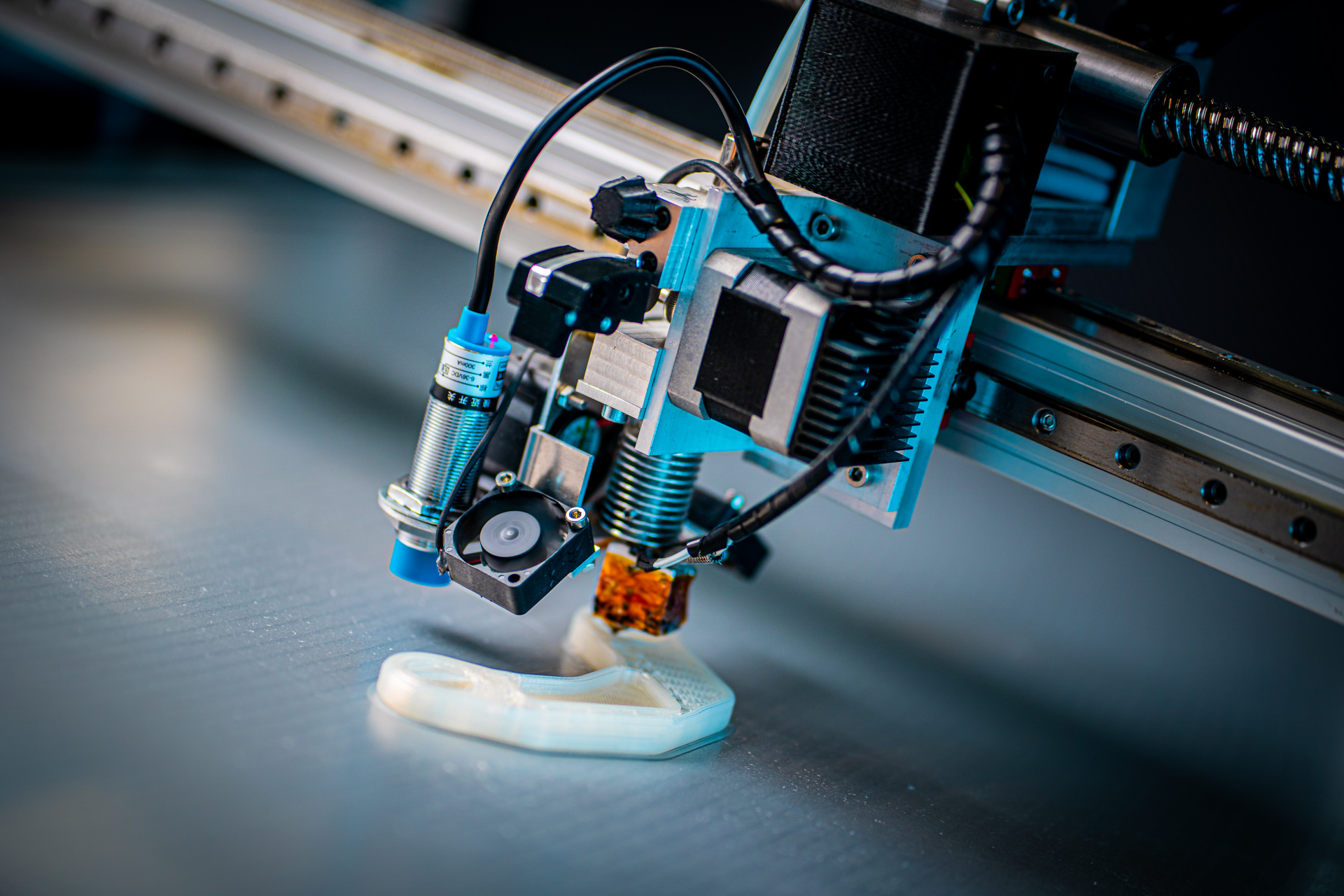

The team of designers receives both drawings, a 3D model and a finished printout of the frame, in order to visualise the design to be applied to the frame
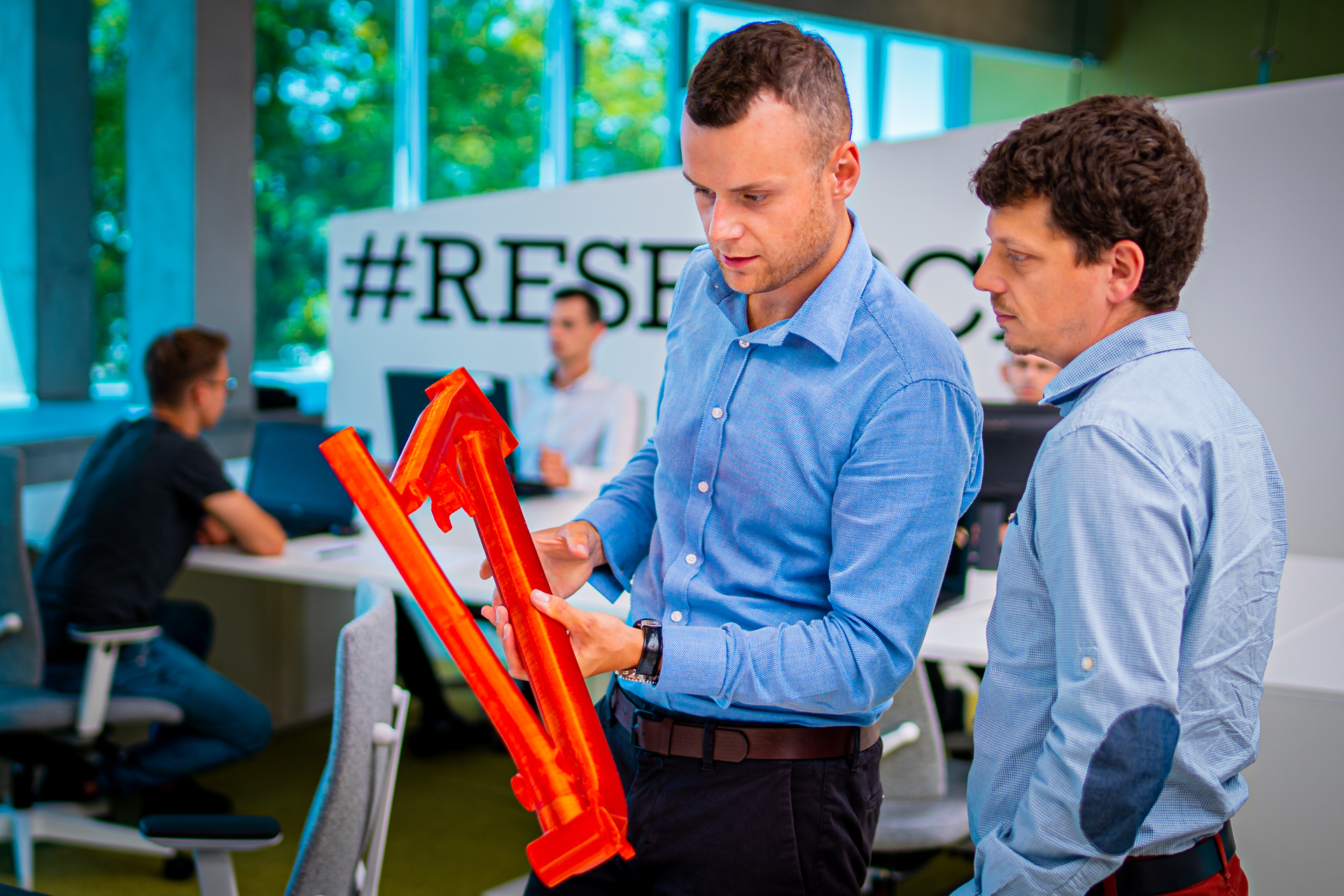

A 3D scanner is a device that analyses an object or the real-world environment to collect data about its shape and sometimes its appearance (for example, its colour). The collected data can then be used to construct digital 3D models. This makes it possible to apply so-called reverse engineering, i.e. to get the dimensions of the existing element and reflect it in the drawing, and also to create a physically identical element
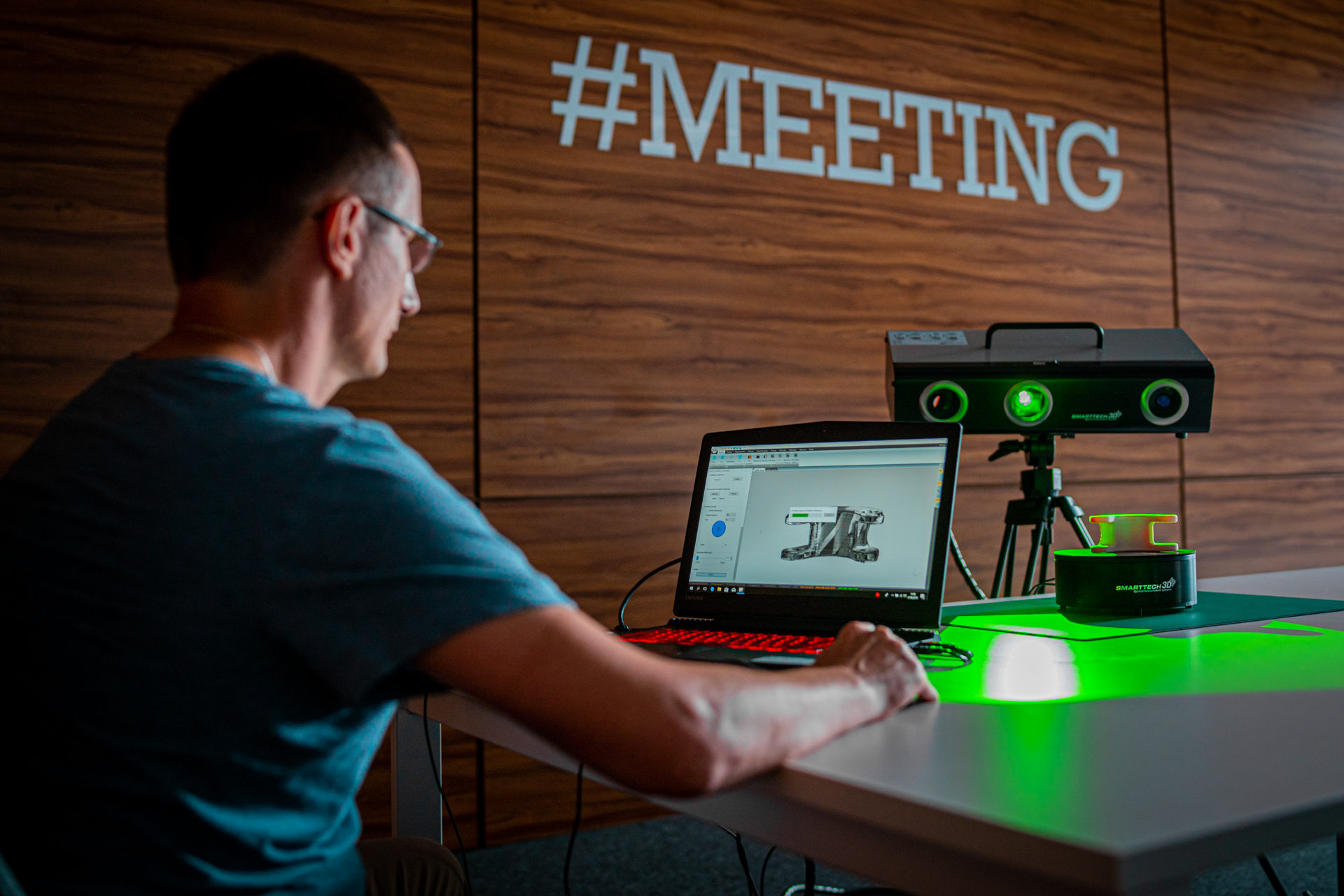

Robotised frame manufacturing based on automated lines is a technological innovation on a global scale. With this development, it becomes possible to produce a whole bicycle frame in a single, continuous welding process. Automation ensures the repeatability, high production rate and top quality of the final product.

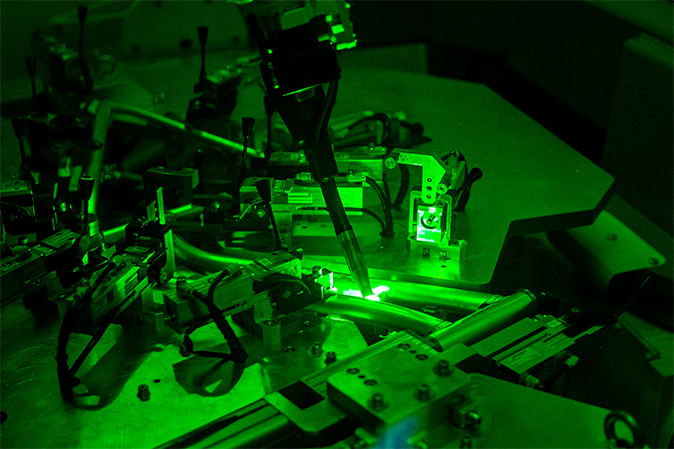
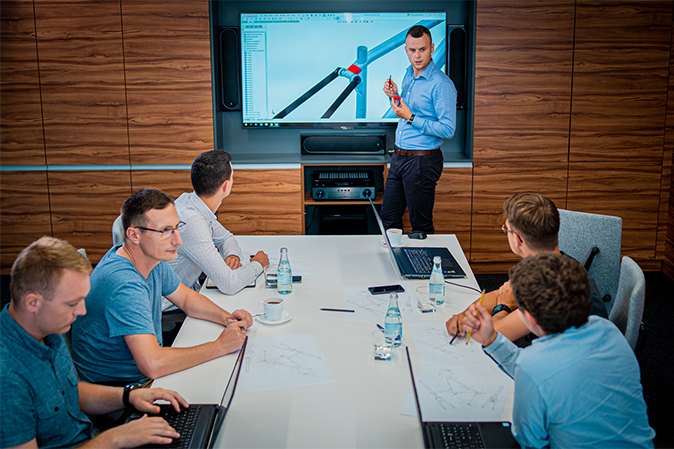
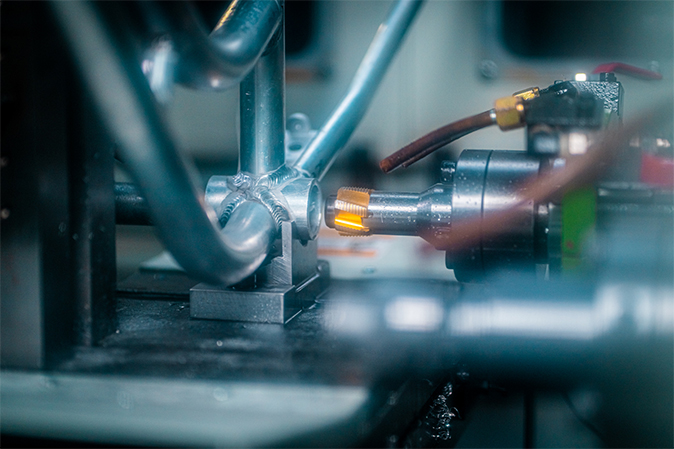
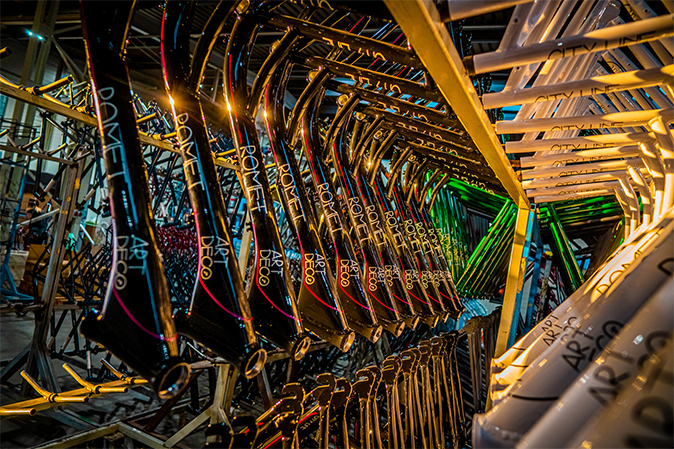
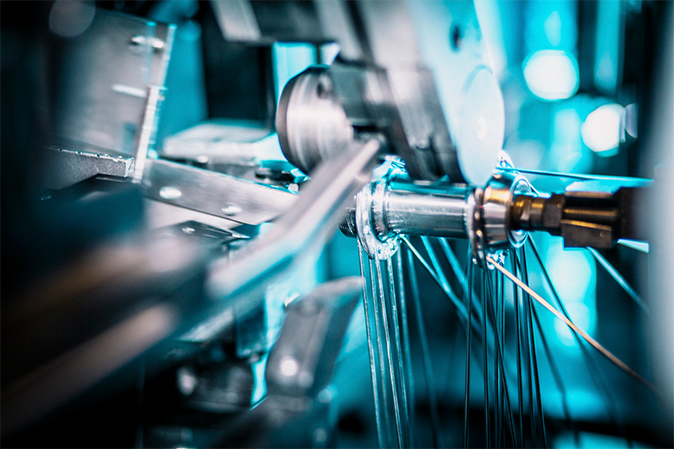
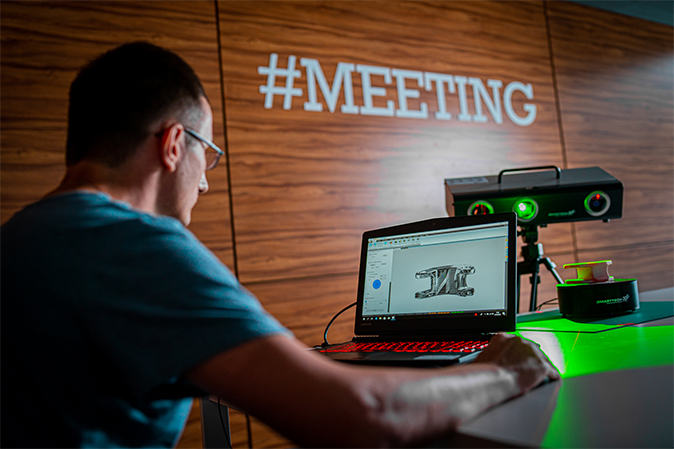
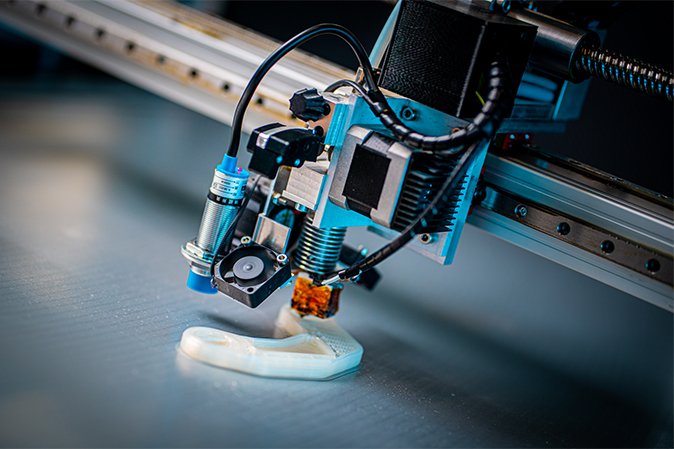
The R&D team is totally responsible for the creation of designs from the concept stage, through sketches and 2D models, all the way to the detailed design documentation. Thanks to modern 3D printers the production of a frame model prototype takes less than 24 hours, which significantly speeds up the process from design to production.
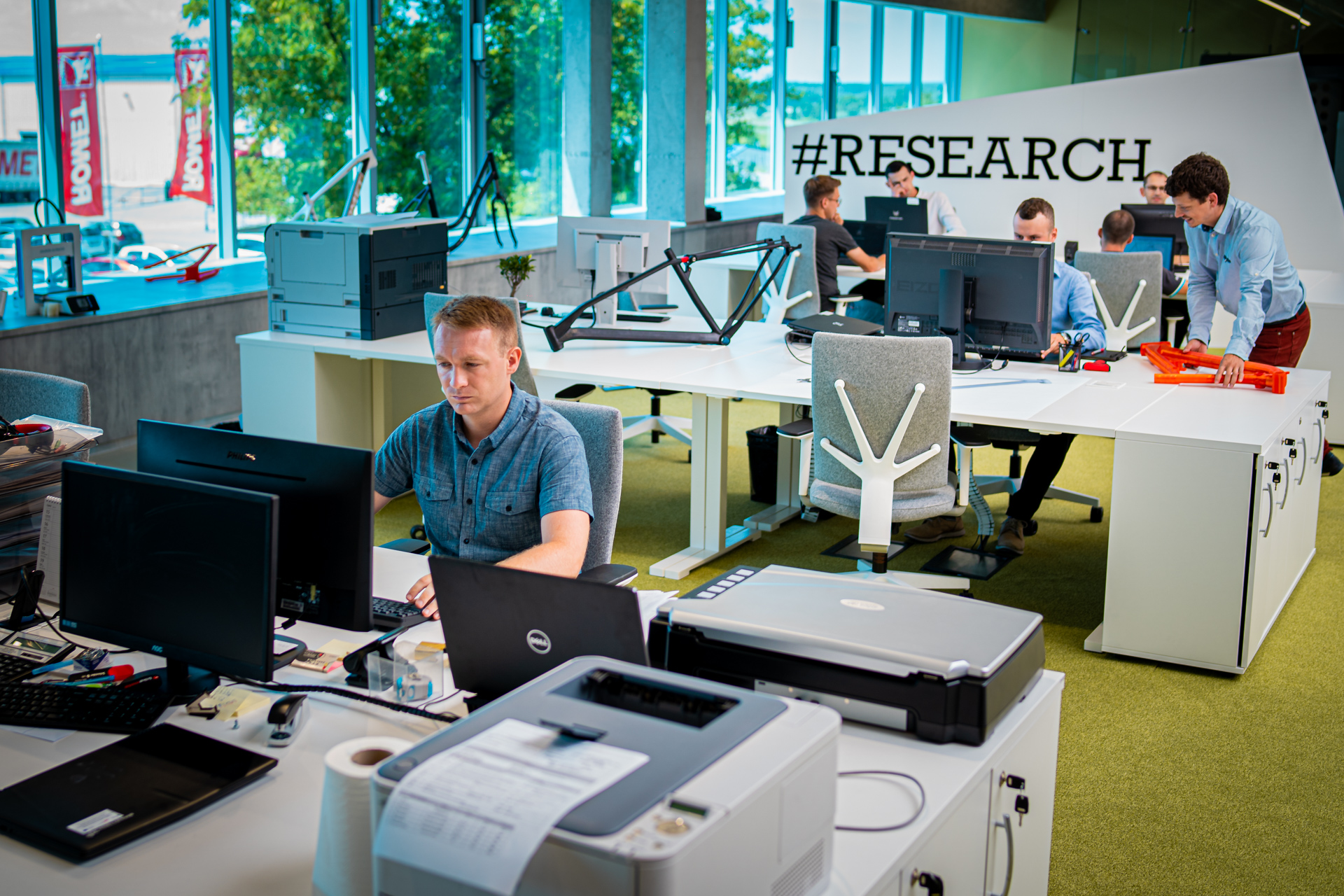

We run fatigue and impact tests, as well as simulations in a climate chamber. We can test such components as frames, forks, wheels, saddles, handlebars, pedals, and drivetrains, as well as whole bicycles under load, in both impact and fatigue tests. By using extensive apparatus, every component of a bicycle can be tested in both virtual and real conditions, and, as a result, we are able to gain an insight into the processes which operate during the use of the bicycle.
We carry out frame fatigue and impact tests. We test and check the strength of vital areas of the frame, such as the saddle stem and the head tube. The impact test checks the material for impact strength.
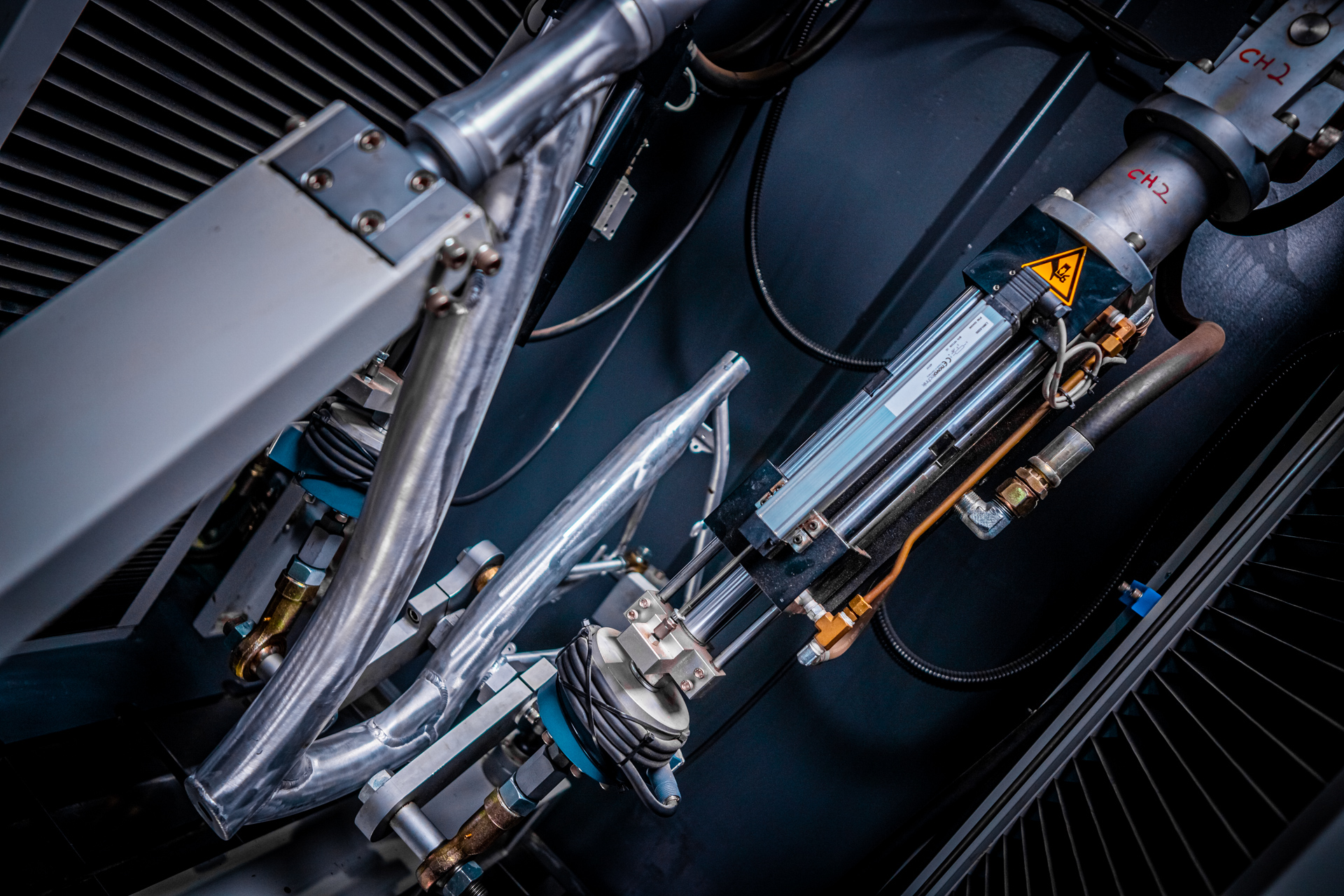

We test steel, aluminium, and composite forks. The tested components undergo fatigue, dynamic, and impact tests.
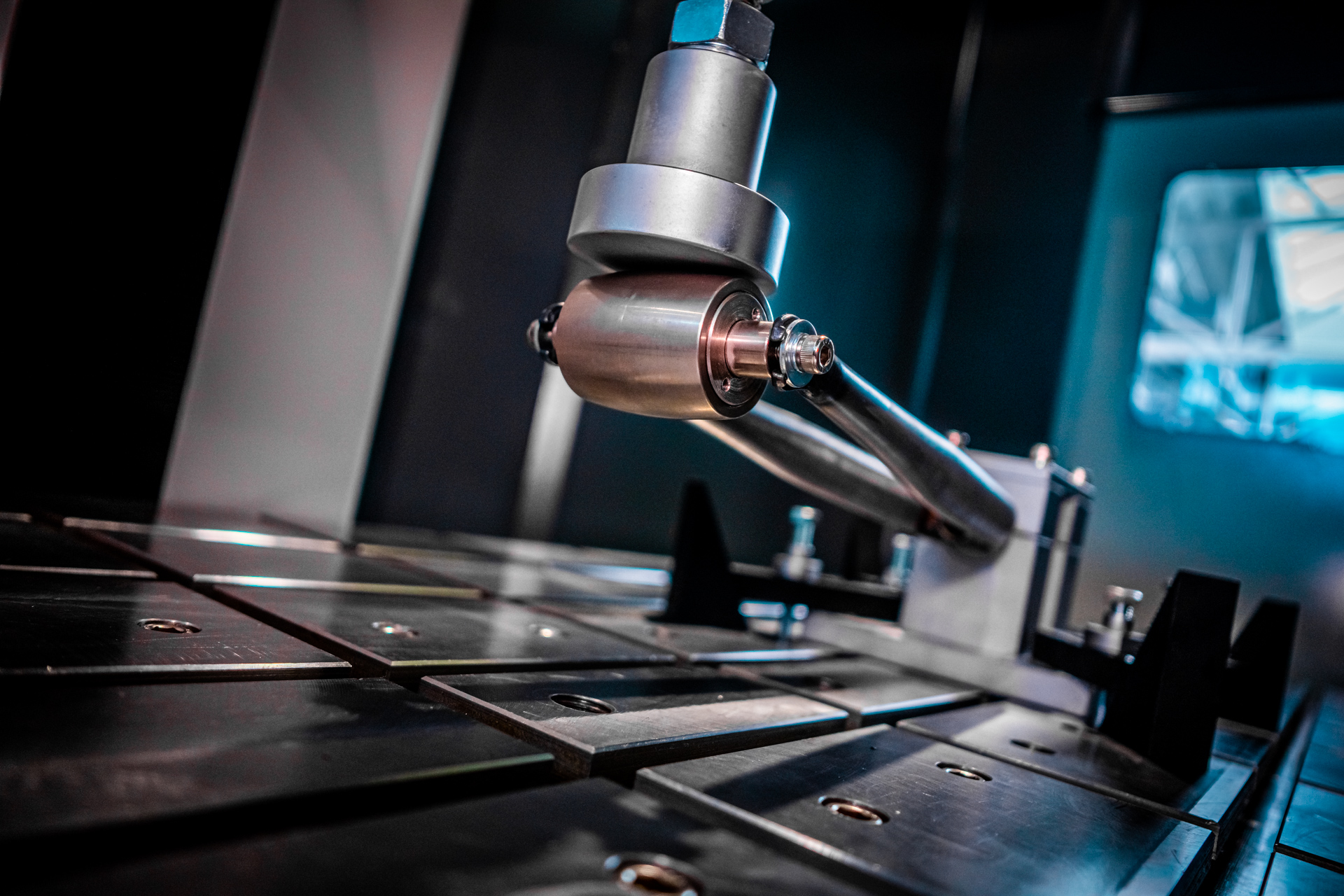

The wheel-centricity test involves checking the rotational accuracy of the wheel and rim. It is used to assess both the horizontal and vertical inclinations. The test simulates the use of the component when driving in real conditions, and on diverse terrains.
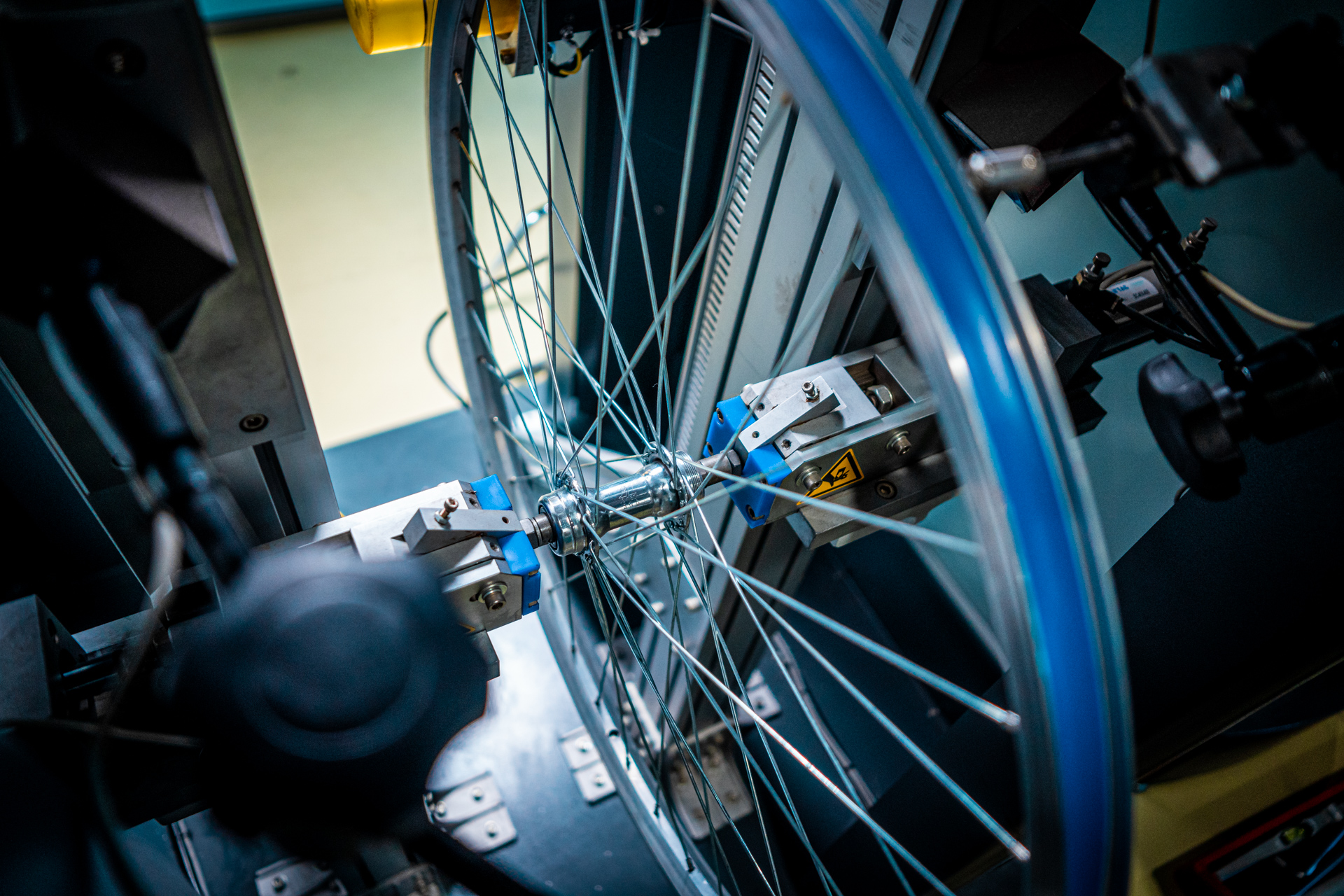

We carry out both stress and fatigue tests. We check the disc brakes and v-brakes, both mechanical and hydraulic, as well as foot brakes.
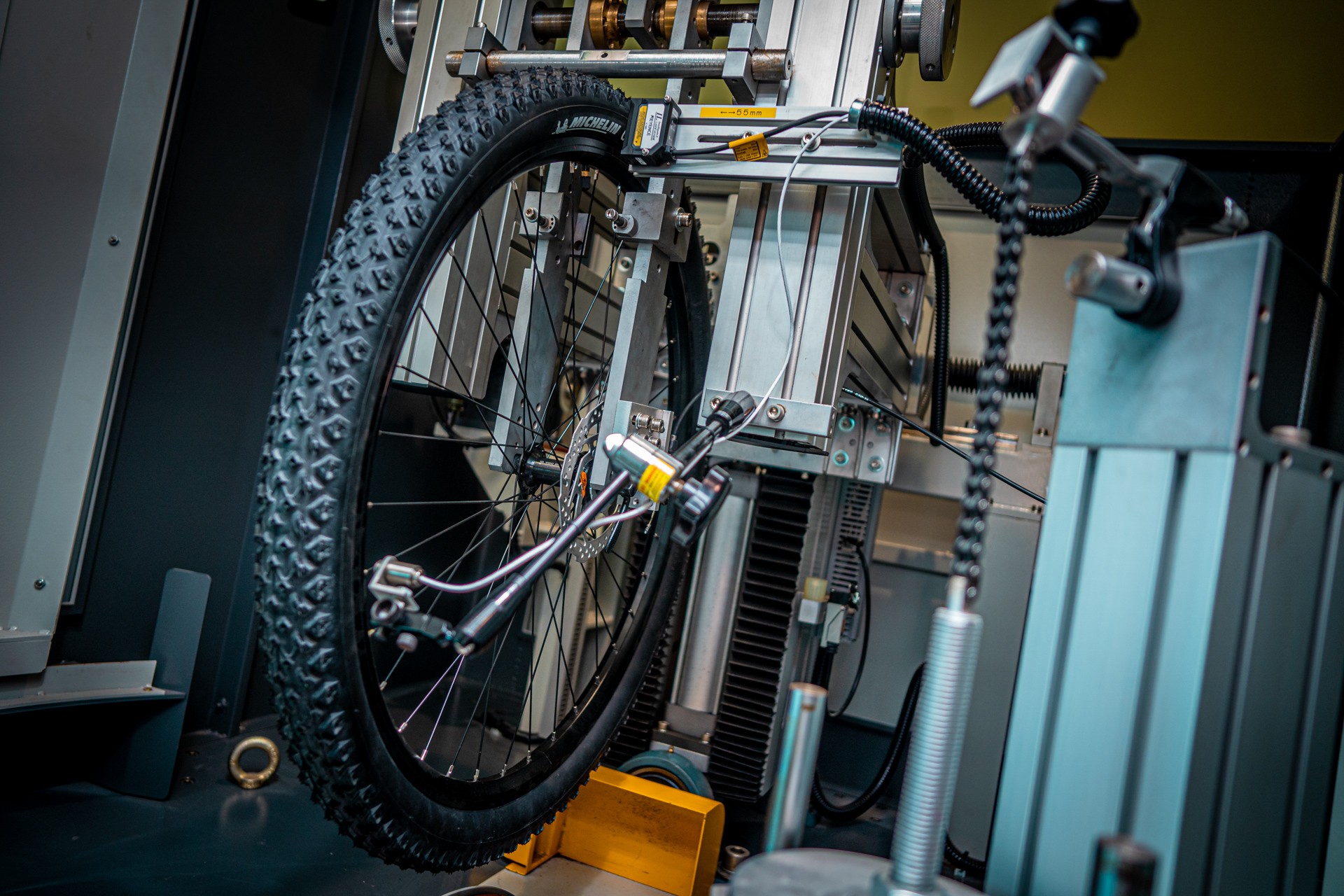

The fatigue test for the bicycle drivetrain simulates a system of forces which act on the component while the cyclist is pedalling, when both seated and standing.
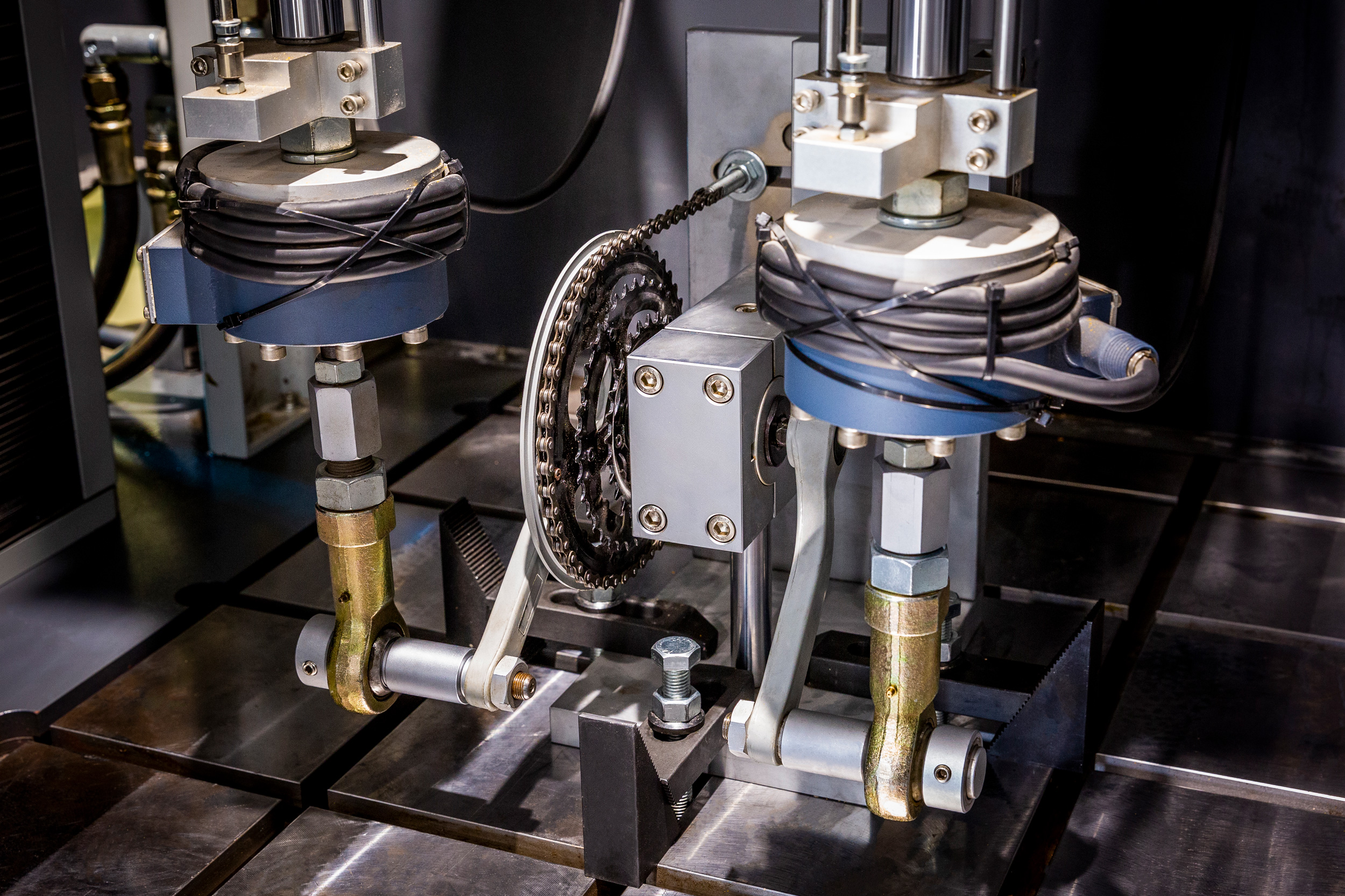

The steering wheels tested by us undergo a series of static and dynamic tests that verify the deformation and strength of the tested component. In our laboratory, we will test different types of steering wheels, regardless of their purpose, size, material or shape.
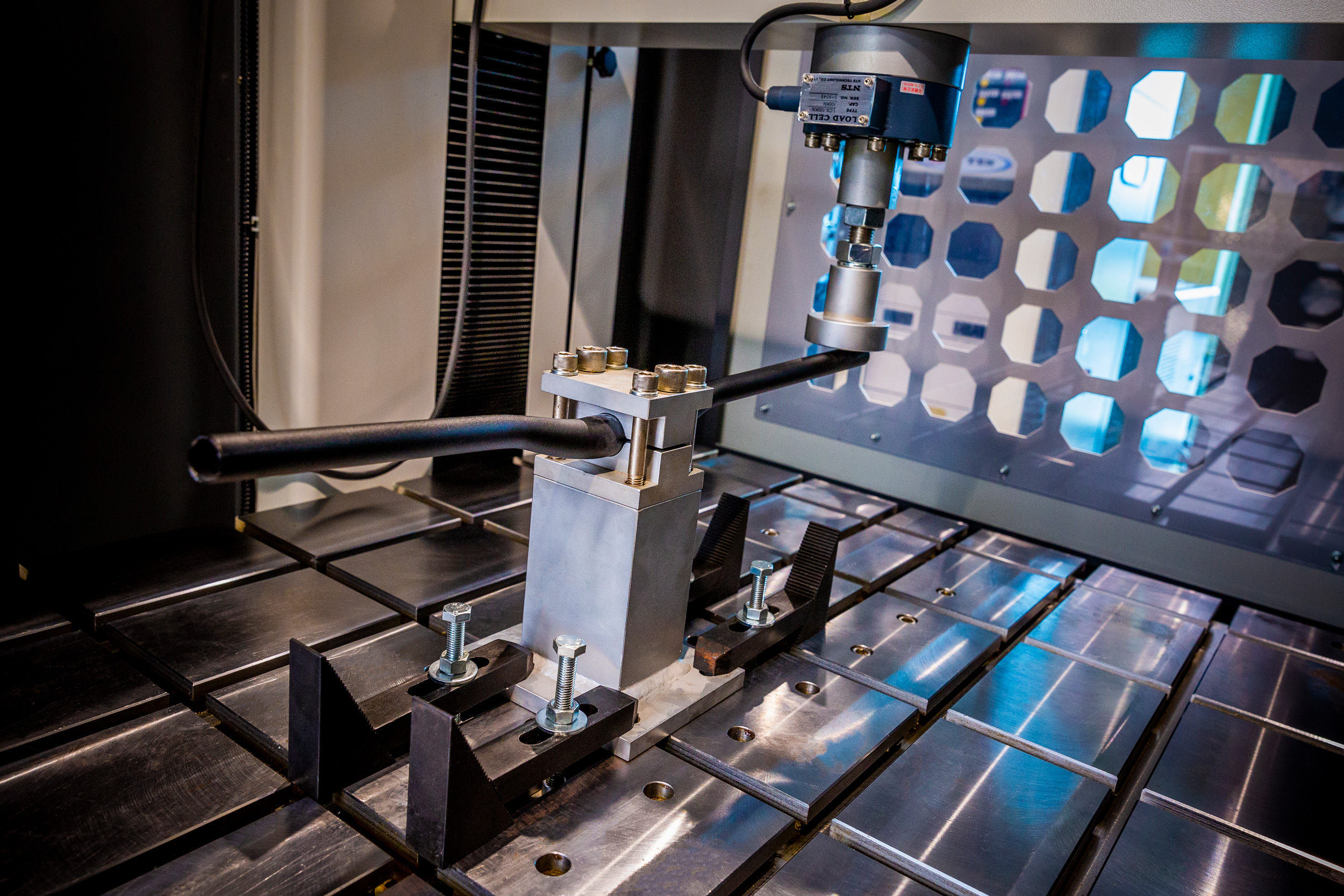

The component is subjected to static and dynamic tests. The test result provides an assessment of the test piece’s deformation to allow meeting the standard and tolerance range.
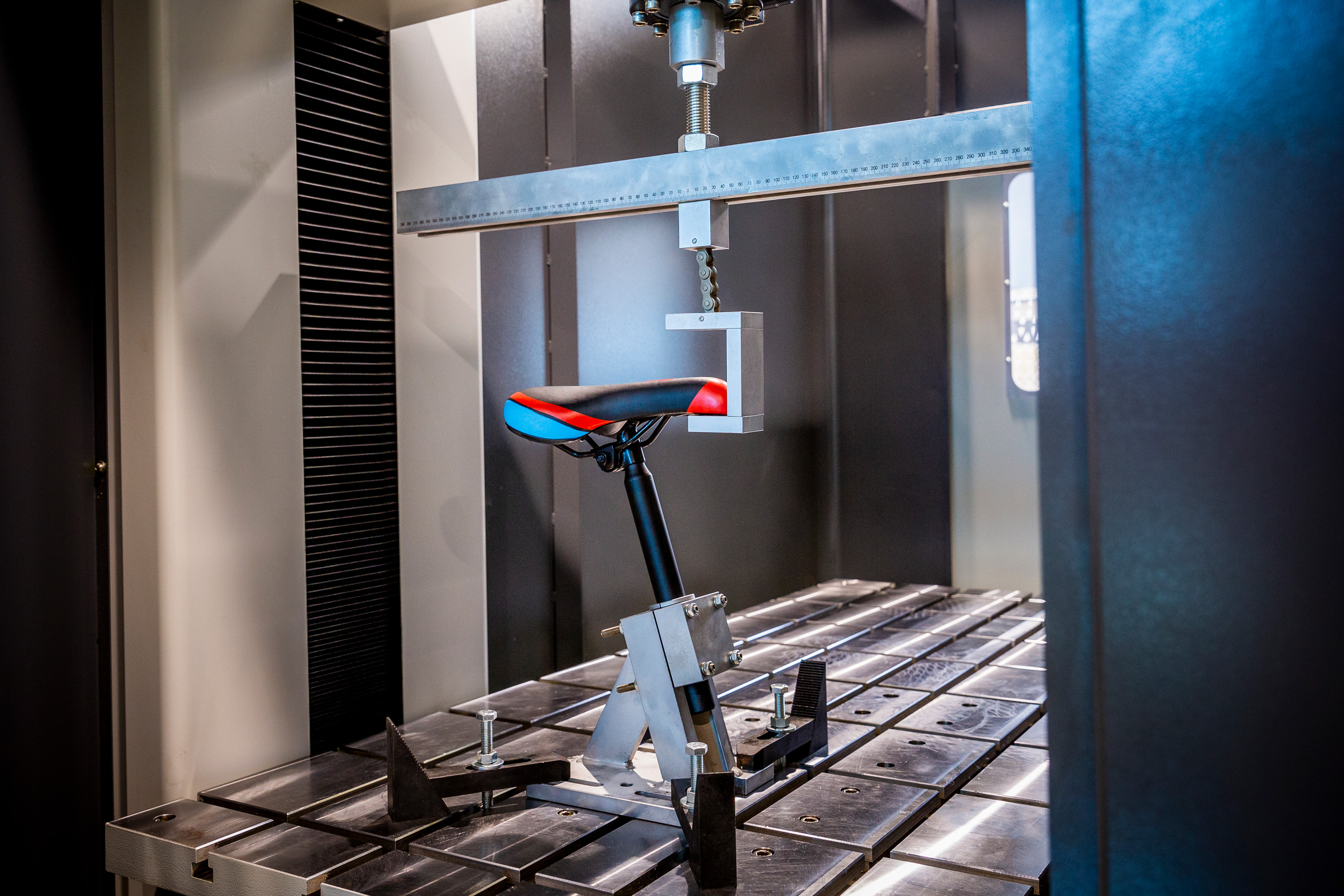

The procedure is used for testing a bicycle for durability, when fitted with all components, with simulation of weather conditions. and the capacity of the brakes’ use.
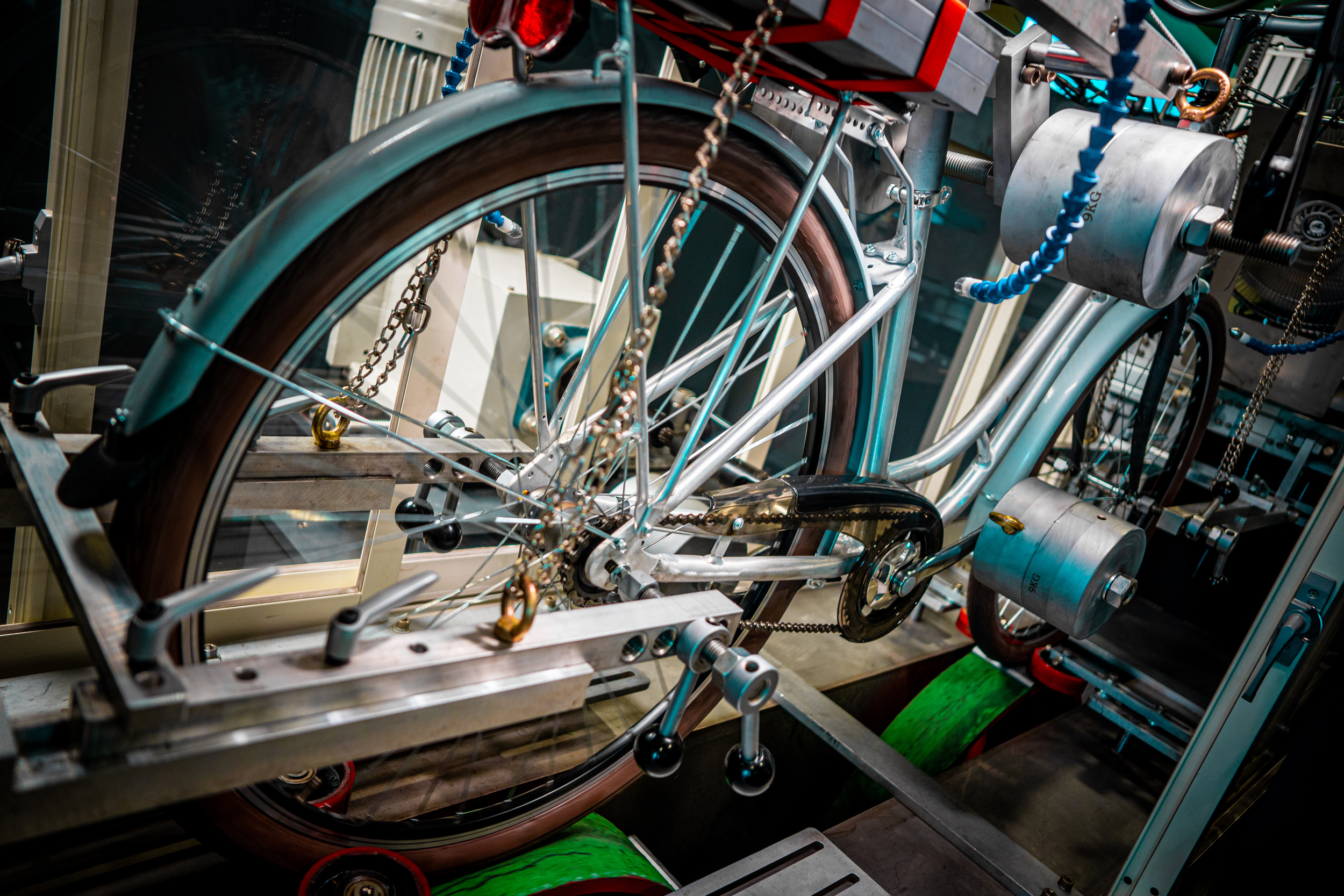

The strength of the product plays a crucial role in the safety of its operation. The testing-machine unit we have at our disposal allows us to simulate the daily use of bicycle components. By carrying out fatigue, impact, static, dynamic, and climate-chamber tests, we identify and prevent damage and its possible consequences before the bike is ridden on real terrain.


A requirement to be met in order to market a product is its certification. This is the need to attest to a product’s conformity to the requirements laid down in a particular specification, and it also results from the provisions of the law. We have qualified personnel, and we are authorised to grant the ISO 4210 certification. Our laboratory carries out certification activities in the field of bicycle-component certification. We are accredited for ISO 9001 2015 & ISO/IEC-17025:2005.
The aluminum frames we offer are made in our fully robotic factory, equipped with the most modern machines. The set of profiles is processed in an advanced hydroforming process, in addition, the profiles are butted to ensure maximum rigidity while maintaining a minimum weight.
Taper heads of the frame ensure precise handling and stability of the bicycle. The profiles from which we produce frames are of Polish origin. By creating the framework in Poland, we have full control over the quality of the material and technology, as well as the production process itself.
Piano black
Cold white
Na zamówienie
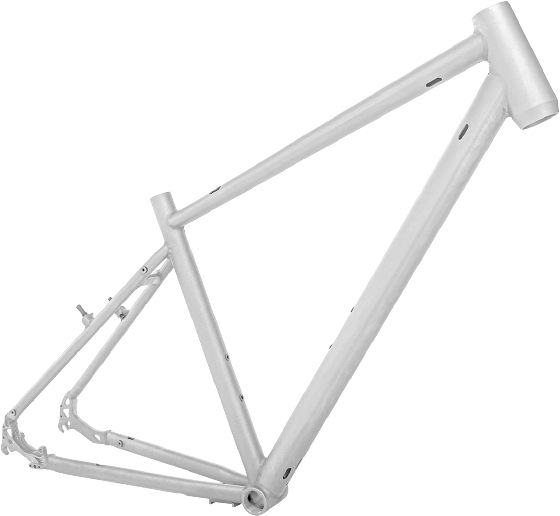
| Size | M | L | |
| A - Frame size | 480 mm | 520 mm | |
| B - top tube lenght | 580 mm | 605 mm | |
| C - chainstay lenght | 450 mm | 450 mm | |
| D - seat tube angle | 66° | 66° | |
| E - head tube angle | 70° | 70° | |
| F - whee; base | 649,8 mm | 675 mm | |
| G - head tube lenght | 150 mm | 150 mm | |
| H - fork lenght | 490 mm | 490 mm |
The aluminum frames we offer are made in our fully robotic factory, equipped with the most modern machines. The set of profiles is processed in an advanced hydroforming process, in addition, the profiles are butted to ensure maximum rigidity while maintaining a minimum weight.
Taper heads of the frame ensure precise handling and stability of the bicycle. The profiles from which we produce frames are of Polish origin. By creating the framework in Poland, we have full control over the quality of the material and technology, as well as the production process itself.
Piano black
Cold white
Na zamówienie
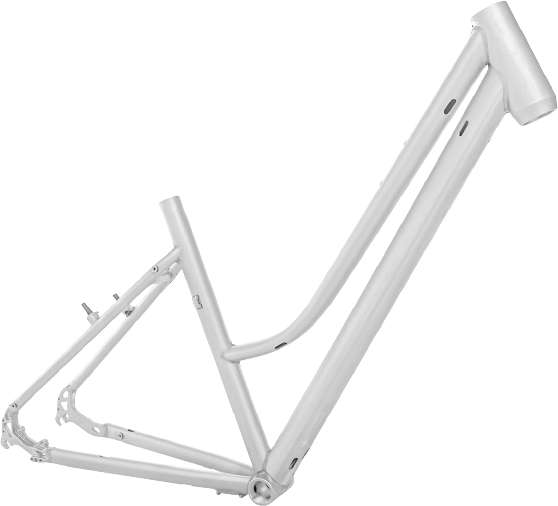
| Size | M | L | |
| A - Frame size | 460 mm | 500 mm | |
| B - top tube lenght | 565 mm | 590 mm | |
| C - chainstay lenght | 450 mm | 450 mm | |
| D - seat tube angle | 66° | 66° | |
| E - head tube angle | 69° | 69° | |
| F - whee; base | 646 mm | 671 mm | |
| G - head tube lenght | 150 mm | 150 mm | |
| H - fork lenght | 490 mm | 490 mm |
The aluminum frames we offer are made in our fully robotic factory, equipped with the most modern machines. The set of profiles is processed in an advanced hydroforming process, in addition, the profiles are butted to ensure maximum rigidity while maintaining a minimum weight.
Taper heads of the frame ensure precise handling and stability of the bicycle. The profiles from which we produce frames are of Polish origin. By creating the framework in Poland, we have full control over the quality of the material and technology, as well as the production process itself.
Cold White
Na zamówienie
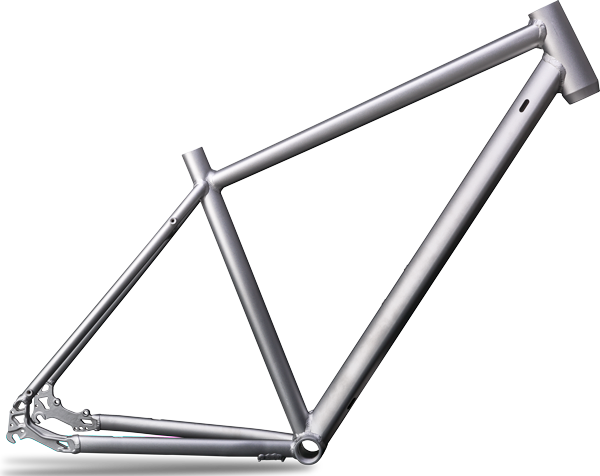
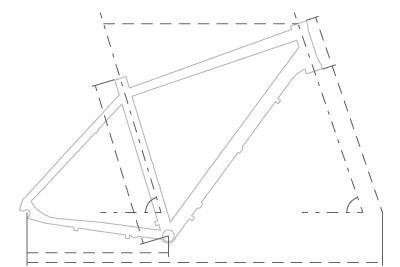
| Size | M | L | |
| A - Frame size | 460 | 500 | |
| B - top tube lenght | 558 | 580 | |
| C - chainstay lenght | 450 | 450 | |
| D - seat tube angle | 66 | 66 | |
| E - head tube angle | 70 | 70 | |
| F - whee; base | 1100 | 1125 | |
| G - head tube lenght | 150 | 150 | |
| H - fork lenght | 490 | 490 |
The aluminum frames we offer are made in our fully robotic factory, equipped with the most modern machines. The set of profiles is processed in an advanced hydroforming process, in addition, the profiles are butted to ensure maximum rigidity while maintaining a minimum weight.
Taper heads of the frame ensure precise handling and stability of the bicycle. The profiles from which we produce frames are of Polish origin. By creating the framework in Poland, we have full control over the quality of the material and technology, as well as the production process itself.
Cold White
Na zamówienie
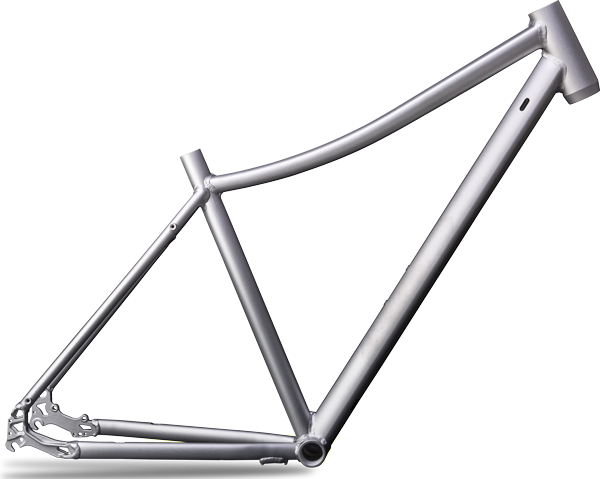
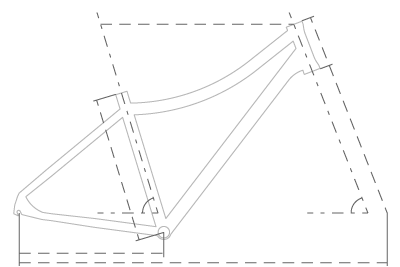
| Size | M | L | |
| A - Frame size | 430 | 480 | |
| B - top tube lenght | 565 | 565 | |
| C - chainstay lenght | 445 | 445 | |
| D - seat tube angle | 73 | 73 | |
| E - head tube angle | 69 | 69 | |
| F - whee; base | 1075 | 1076 | |
| G - head tube lenght | 150 | 150 | |
| H - fork lenght | 465 | 465 |
The aluminum frames we offer are made in our fully robotic factory, equipped with the most modern machines. The set of profiles is processed in an advanced hydroforming process, in addition, the profiles are butted to ensure maximum rigidity while maintaining a minimum weight.
Taper heads of the frame ensure precise handling and stability of the bicycle. The profiles from which we produce frames are of Polish origin. By creating the framework in Poland, we have full control over the quality of the material and technology, as well as the production process itself.
Piano black
Cold white
Na zamówienie
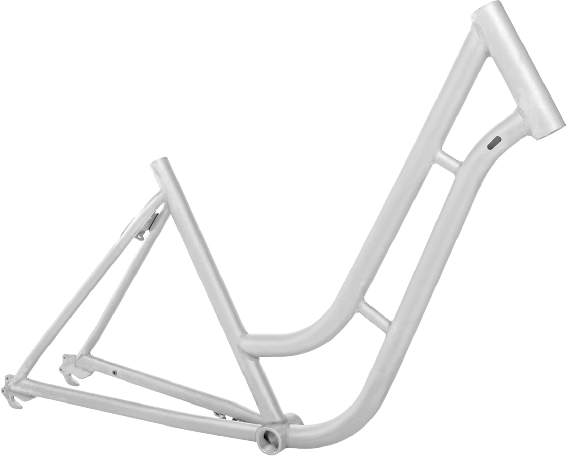
| Size | M | ||
| A - Frame size | 450 mm | ||
| B - top tube lenght | 548 mm | ||
| C - chainstay lenght | 462 mm | ||
| D - seat tube angle | 59° | ||
| E - head tube angle | 68° | ||
| F - whee; base | 671 mm | ||
| G - head tube lenght | 150 mm | ||
| H - fork lenght | 490 mm |
The aluminum frames we offer are made in our fully robotic factory, equipped with the most modern machines. The set of profiles is processed in an advanced hydroforming process, in addition, the profiles are butted to ensure maximum rigidity while maintaining a minimum weight.
Taper heads of the frame ensure precise handling and stability of the bicycle. The profiles from which we produce frames are of Polish origin. By creating the framework in Poland, we have full control over the quality of the material and technology, as well as the production process itself.
Piano black
Cold white
Na zamówienie
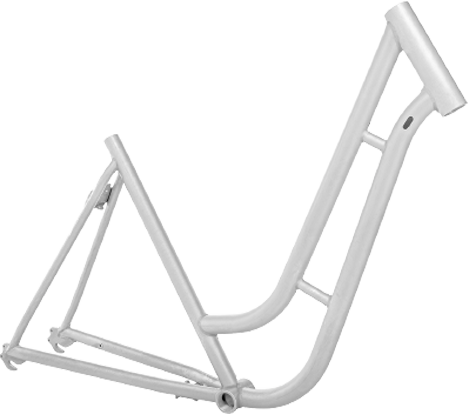
| Size | M | L | |
| A - Frame size | 480 mm | 530 mm | |
| B - top tube lenght | 582 mm | 628 mm | |
| C - chainstay lenght | 490 mm | 490 mm | |
| D - seat tube angle | 57,6° | 56,8° | |
| E - head tube angle | 68° | 68° | |
| F - whee; base | 673,2 mm | 659 mm | |
| G - head tube lenght | 175 mm | 175 mm | |
| H - fork lenght | 429,75 mm | 429,75 mm |
The aluminum frames we offer are made in our fully robotic factory, equipped with the most modern machines. The set of profiles is processed in an advanced hydroforming process, in addition, the profiles are butted to ensure maximum rigidity while maintaining a minimum weight.
Taper heads of the frame ensure precise handling and stability of the bicycle. The profiles from which we produce frames are of Polish origin. By creating the framework in Poland, we have full control over the quality of the material and technology, as well as the production process itself.
Cold White
Na zamówienie
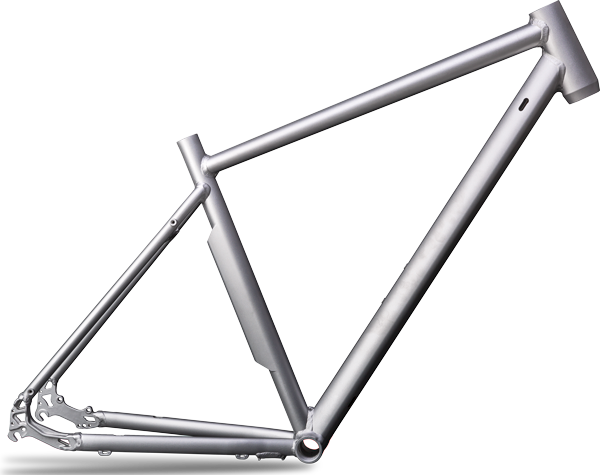
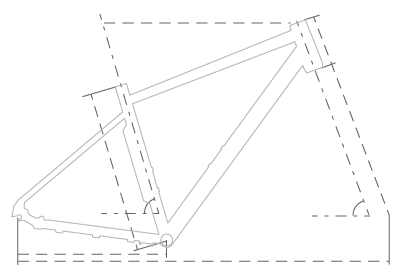
| Size | M | L | |
| A - Frame size | 480 | 520 | |
| B - top tube lenght | 580 | 605 | |
| C - chainstay lenght | 450 | 450 | |
| D - seat tube angle | 73,5 | 73,5 | |
| E - head tube angle | 70 | 70 | |
| F - whee; base | 1100 | 1125 | |
| G - head tube lenght | 150 | 150 | |
| H - fork lenght | 490 | 490 |
The aluminum frames we offer are made in our fully robotic factory, equipped with the most modern machines. The set of profiles is processed in an advanced hydroforming process, in addition, the profiles are butted to ensure maximum rigidity while maintaining a minimum weight.
Taper heads of the frame ensure precise handling and stability of the bicycle. The profiles from which we produce frames are of Polish origin. By creating the framework in Poland, we have full control over the quality of the material and technology, as well as the production process itself.
Cold White
Na zamówienie
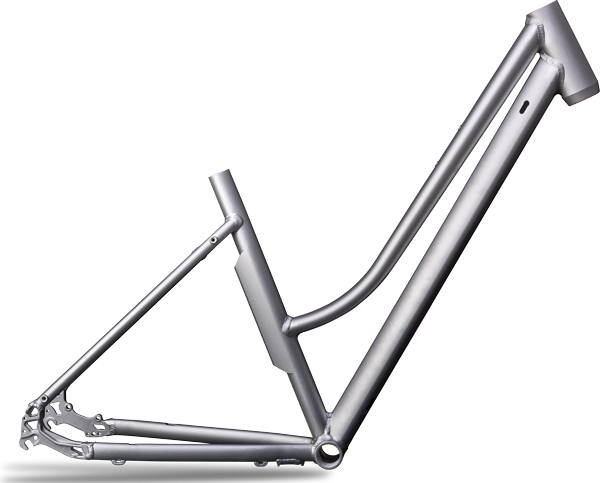
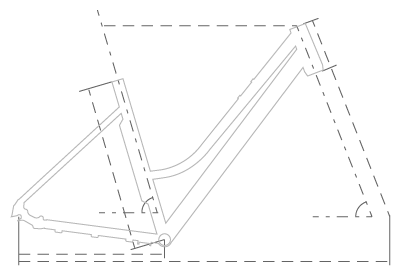
| Size | M | L | |
| A - Frame size | 430 | 480 | |
| B - top tube lenght | 554 | 589 | |
| C - chainstay lenght | 460 | 460 | |
| D - seat tube angle | 66 | 66 | |
| E - head tube angle | 69 | 69 | |
| F - whee; base | 1096 | 1131 | |
| G - head tube lenght | 160 | 160 | |
| H - fork lenght | 490 | 490 |
The aluminum frames we offer are made in our fully robotic factory, equipped with the most modern machines. The set of profiles is processed in an advanced hydroforming process, in addition, the profiles are butted to ensure maximum rigidity while maintaining a minimum weight.
Taper heads of the frame ensure precise handling and stability of the bicycle. The profiles from which we produce frames are of Polish origin. By creating the framework in Poland, we have full control over the quality of the material and technology, as well as the production process itself.
Cold White
Na zamówienie
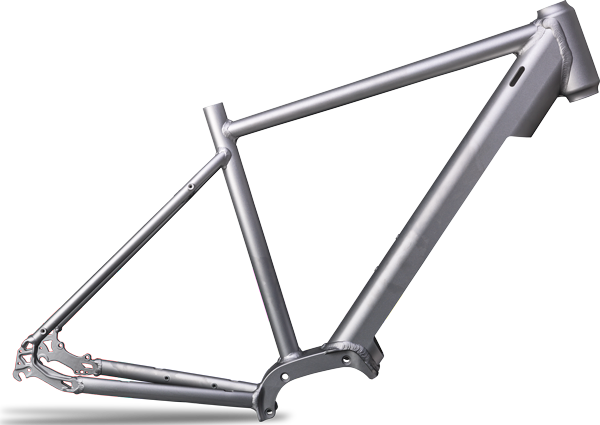
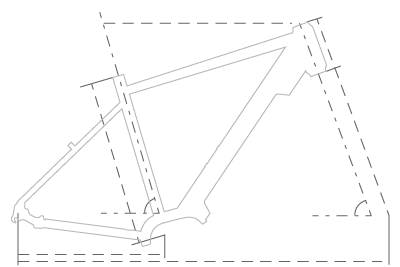
| Size | M | L | |
| A - Frame size | 480 | 520 | |
| B - top tube lenght | 579 | 604 | |
| C - chainstay lenght | 460 | 460 | |
| D - seat tube angle | 66 | 66 | |
| E - head tube angle | 70 | 70 | |
| F - whee; base | 1110 | 1135 | |
| G - head tube lenght | 160 | 160 | |
| H - fork lenght | 490 | 490 |
The aluminum frames we offer are made in our fully robotic factory, equipped with the most modern machines. The set of profiles is processed in an advanced hydroforming process, in addition, the profiles are butted to ensure maximum rigidity while maintaining a minimum weight.
Taper heads of the frame ensure precise handling and stability of the bicycle. The profiles from which we produce frames are of Polish origin. By creating the framework in Poland, we have full control over the quality of the material and technology, as well as the production process itself.
Cold White
Na zamówienie
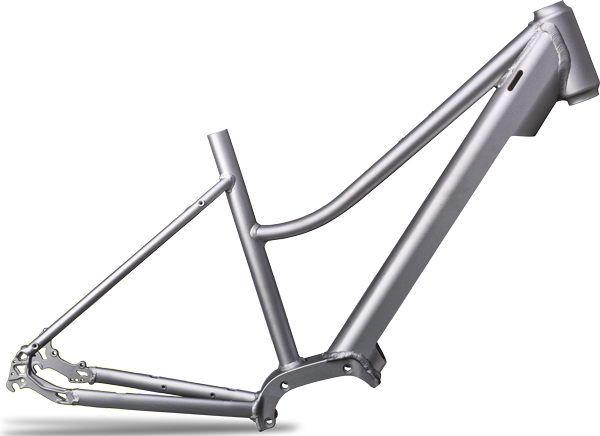
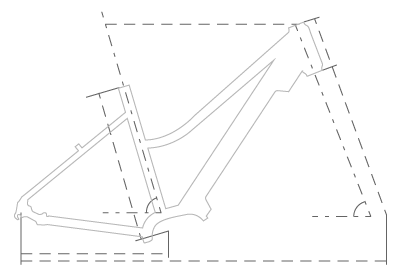
| Size | M | L | |
| A - Frame size | 460 | 500 | |
| B - top tube lenght | 565 | 590 | |
| C - chainstay lenght | 450 | 450 | |
| D - seat tube angle | 73,5 | 73,5 | |
| E - head tube angle | 69 | 69 | |
| F - whee; base | 1096 | 1121 | |
| G - head tube lenght | 150 | 150 | |
| H - fork lenght | 490 | 490 |
The aluminum frames we offer are made in our fully robotic factory, equipped with the most modern machines. The set of profiles is processed in an advanced hydroforming process, in addition, the profiles are butted to ensure maximum rigidity while maintaining a minimum weight.
Taper heads of the frame ensure precise handling and stability of the bicycle. The profiles from which we produce frames are of Polish origin. By creating the framework in Poland, we have full control over the quality of the material and technology, as well as the production process itself.
Cold White
Na zamówienie

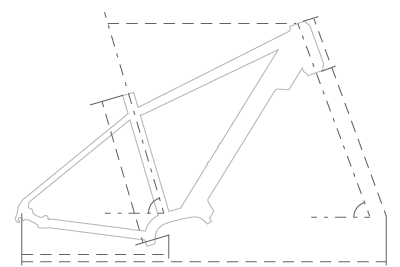
| Size | M | L | |
| A - Frame size | 460 | 500 | |
| B - top tube lenght | 579 | 604 | |
| C - chainstay lenght | 460 | 460 | |
| D - seat tube angle | 66 | 66 | |
| E - head tube angle | 70 | 70 | |
| F - whee; base | 1110 | 1135 | |
| G - head tube lenght | 160 | 160 | |
| H - fork lenght | 490 | 490 |
The aluminum frames we offer are made in our fully robotic factory, equipped with the most modern machines. The set of profiles is processed in an advanced hydroforming process, in addition, the profiles are butted to ensure maximum rigidity while maintaining a minimum weight.
Taper heads of the frame ensure precise handling and stability of the bicycle. The profiles from which we produce frames are of Polish origin. By creating the framework in Poland, we have full control over the quality of the material and technology, as well as the production process itself.
Cold White
Na zamówienie
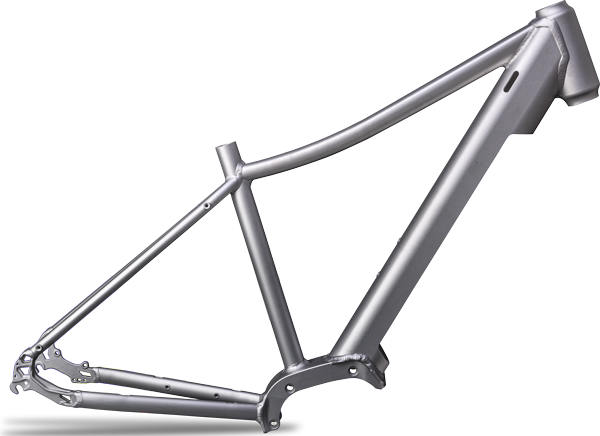
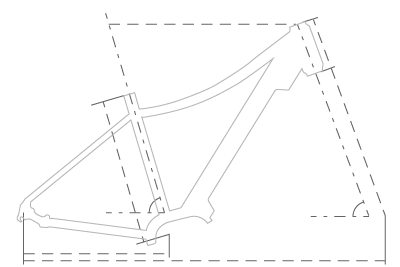
| Size | M | L | |
| A - Frame size | 460 | 500 | |
| B - top tube lenght | 579 | 604 | |
| C - chainstay lenght | 460 | 460 | |
| D - seat tube angle | 66 | 66 | |
| E - head tube angle | 70 | 70 | |
| F - whee; base | 1110 | 1135 | |
| G - head tube lenght | 160 | 160 | |
| H - fork lenght | 490 | 490 |
pod hamulce typu HT oraz V-brake
We produce the rims in an advanced, fully automated production process, in which we use high-class aluminum alloys. We offer rims for each type of bicycle. The rims we manufacture are designed for rim brakes of the V-brake type and disc brakes (HT). Thanks to the use of high-quality materials of Polish origin, we guarantee high quality and durability of the rims.
Piano black
Raw silver
Na zamówienie
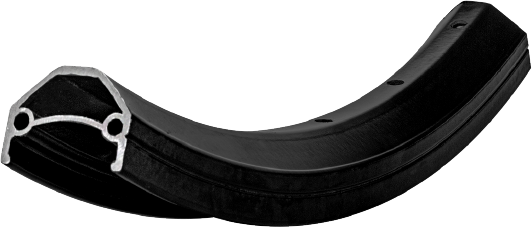
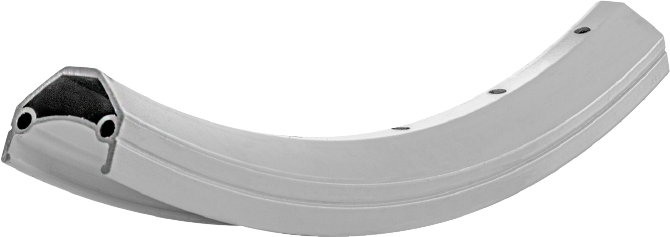

| Size | ETRTO | Weight | Holes |
| 28' 29' | 622 x 24 | 700 g | 36/32 |
| 27' | 584 x 24 | 650 g | 36/32 |
| 26' | 559 x 24 | 600 g | 36/32 |
| 24' | 507 x 24 | 500 g | 36/32 |
pod hamulce typu HT oraz V-brake
We produce the rims in an advanced, fully automated production process, in which we use high-class aluminum alloys. We offer rims for each type of bicycle. The rims we manufacture are designed for rim brakes of the V-brake type and disc brakes (HT). Thanks to the use of high-quality materials of Polish origin, we guarantee high quality and durability of the rims.
Piano black
Raw silver
Na zamówienie

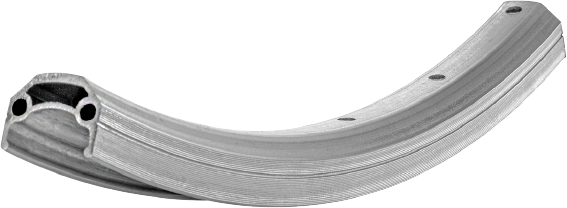

| Size | ETRTO | Weight | Holes |
| 700 C | 622 x 19 | 620 g | 36/32 |
| 26‘ | 559 x 19 | 550 g | 36/32 |
| 24 ‘ | 507 x 19 | 450 g | 36/32 |
| 20 ‘ | 406 x 19 | 350 g | 36/32 |
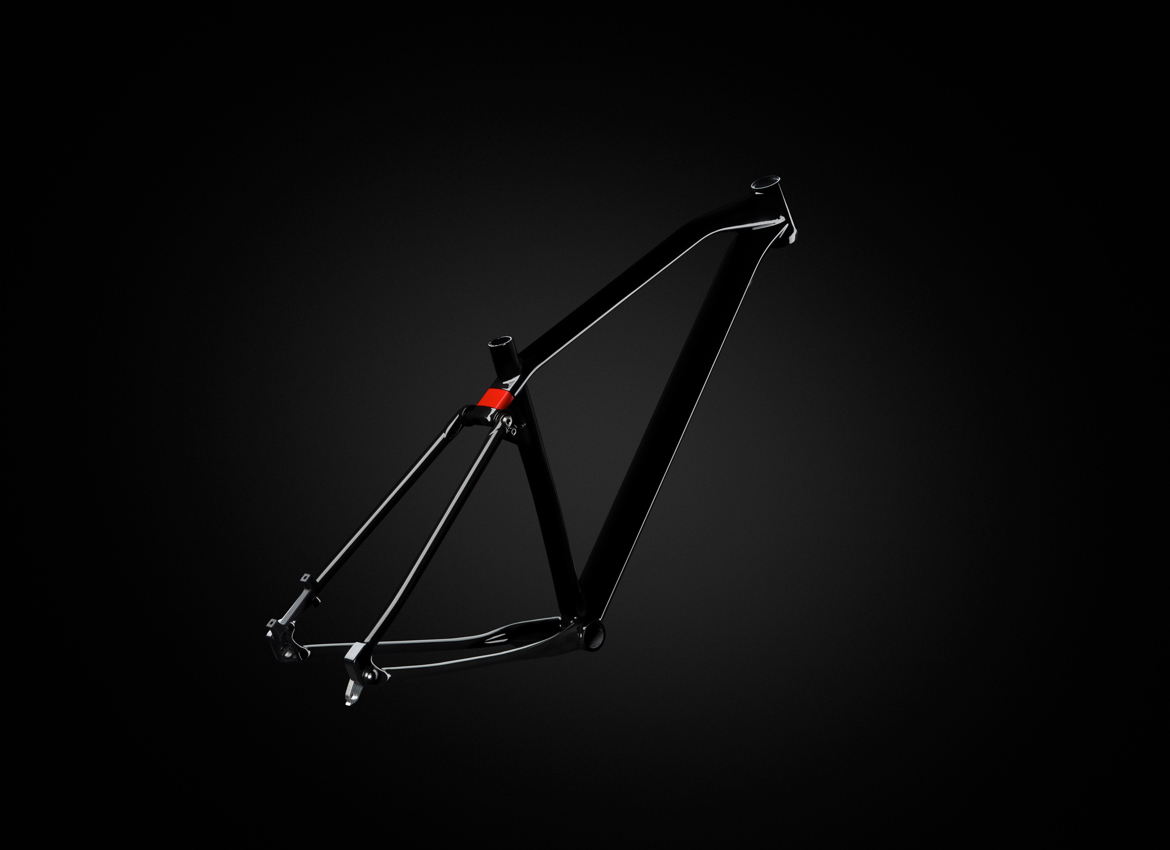
with 25mm stroke ensuring traction and comfort
made of a new aluminium alloy with high fatigue strength and a shape-sensitive profile
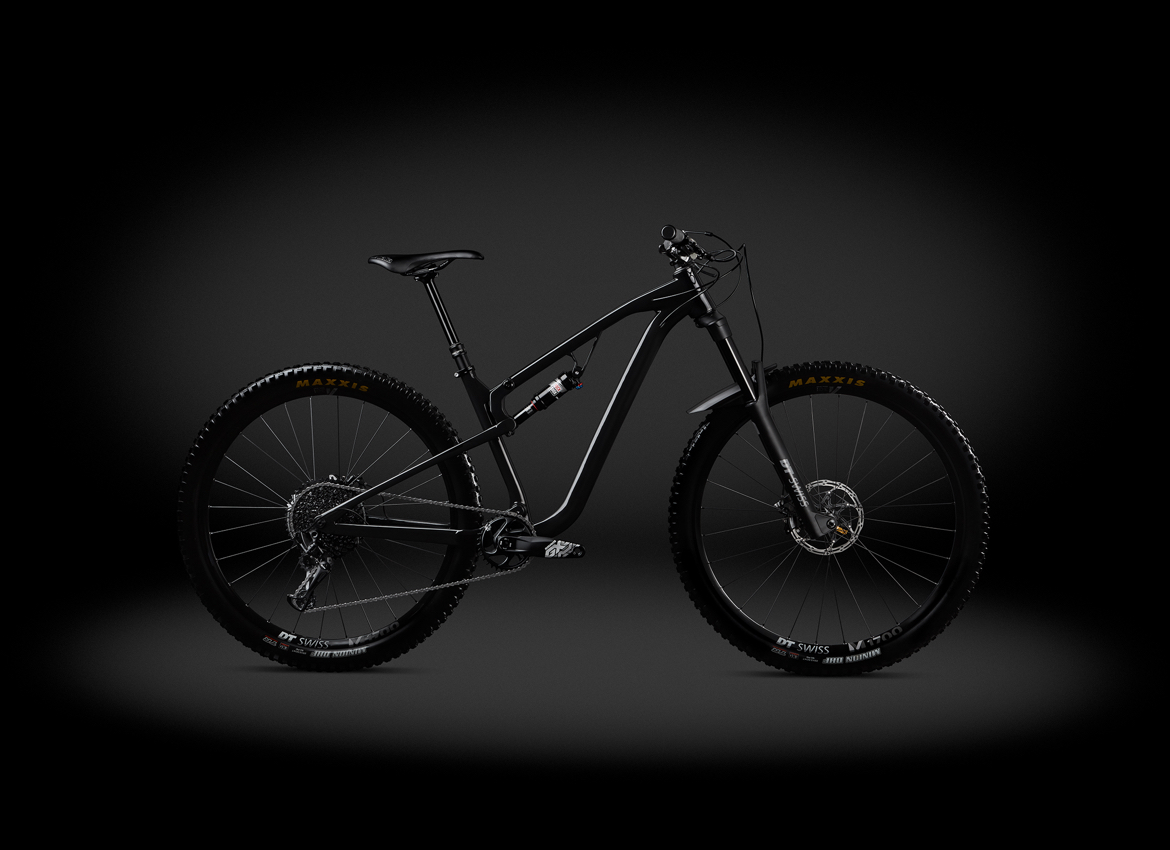
ISO 4210:4.3
ISO 4210:4.4
ISO 4210:4.5
ISO 4210:4.6
ISO 4210:4.7
ISO 4210:5.4.1
ISO 4210:5.4.2
ISO 4210:5.4.3
ISO 4210:5.4.4
ISO 4210:5.4.5
ISO 4210:5.4.6
ISO 4210:5.4.7
ISO 4210:5.4.8
ISO 4210:5.4.9
ISO 4210:6.4.1
ISO 4210:6.4.2
ISO 4210:6.4.3
ISO 4210:6.4.4
ISO 4210:6.4.5
ISO 4210:6.5.2
ISO 4210:6.5.3
ISO 4210:6.5.4
ISO 4210:6.5.5
ISO 4210:6.5.6
ISO 4210:6.5.7
ISO 4210:7.4.1
ISO 4210:7.4.2
ISO 4210:7.4.3
ISO 4210:7.A.1
ISO 4210:7.4.4
ISO 4210:8.4.1
ISO 4210:8.4.2
ISO 4210:8.4.3
ISO 4210:8.4.6
ISO 4210:8.4.6
ISO 4210:8.4.6
ISO 4210:8.4.6
ISO 4210:8.4.6
ISO 4210:8.4.6
ISO 4210:8.4.6
ISO 4210:3 A1
Podgrodzie 34 B
39-200 Dębica
+48(14) 658 40 30
biuro@ag-motors.pl
+48(14) 658 40 30
biuro@ag-motors.pl
The Company is registered in the District Court in Rzeszów, 12th Commercial Department of the National Court Register, under KRS No.: 0000343691. NIP: 8722361970
